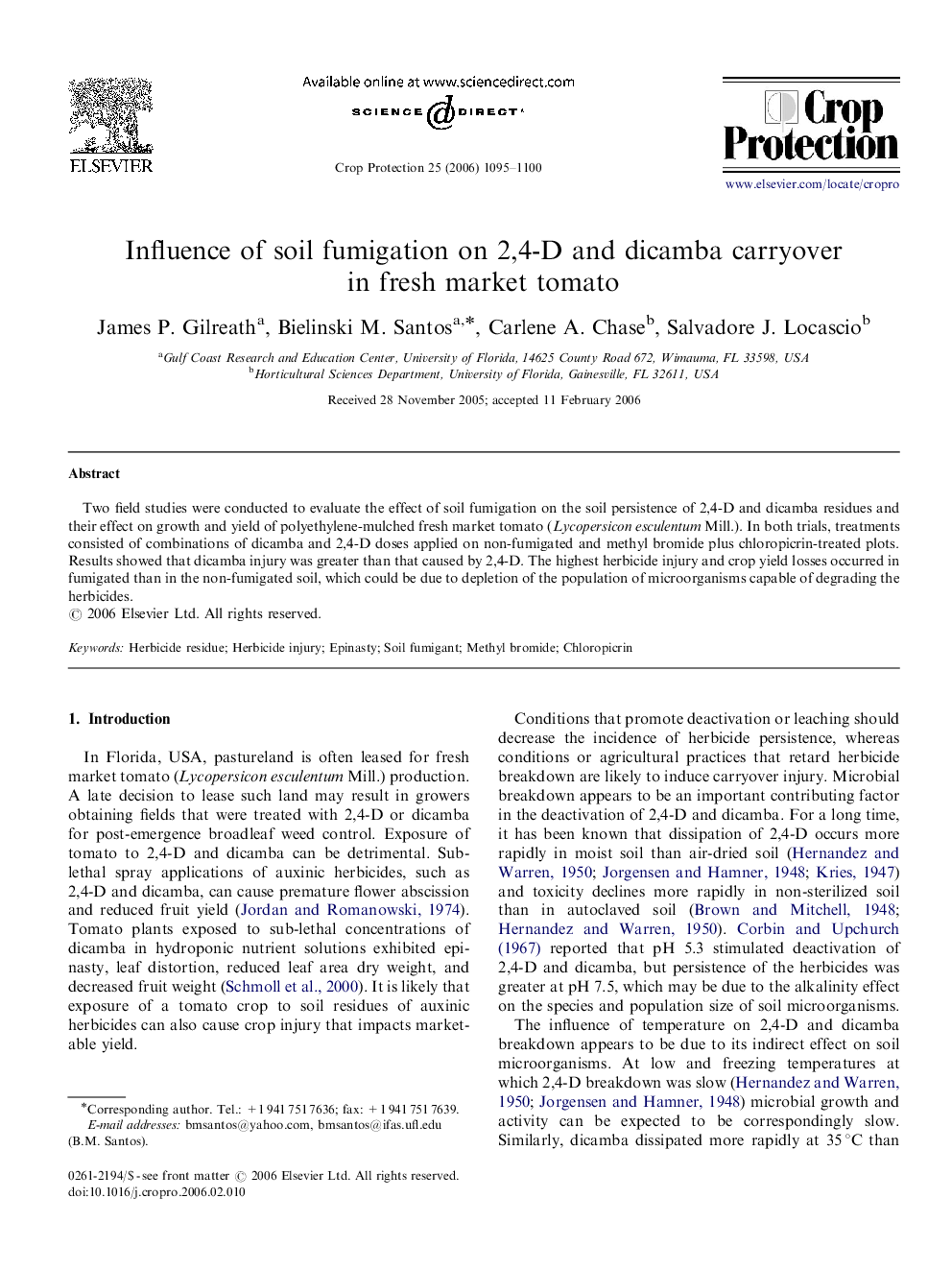| Article ID | Journal | Published Year | Pages | File Type |
|---|---|---|---|---|
| 4507983 | Crop Protection | 2006 | 6 Pages |
Abstract
Two field studies were conducted to evaluate the effect of soil fumigation on the soil persistence of 2,4-D and dicamba residues and their effect on growth and yield of polyethylene-mulched fresh market tomato (Lycopersicon esculentum Mill.). In both trials, treatments consisted of combinations of dicamba and 2,4-D doses applied on non-fumigated and methyl bromide plus chloropicrin-treated plots. Results showed that dicamba injury was greater than that caused by 2,4-D. The highest herbicide injury and crop yield losses occurred in fumigated than in the non-fumigated soil, which could be due to depletion of the population of microorganisms capable of degrading the herbicides.
Related Topics
Life Sciences
Agricultural and Biological Sciences
Agronomy and Crop Science
Authors
James P. Gilreath, Bielinski M. Santos, Carlene A. Chase, Salvadore J. Locascio,
